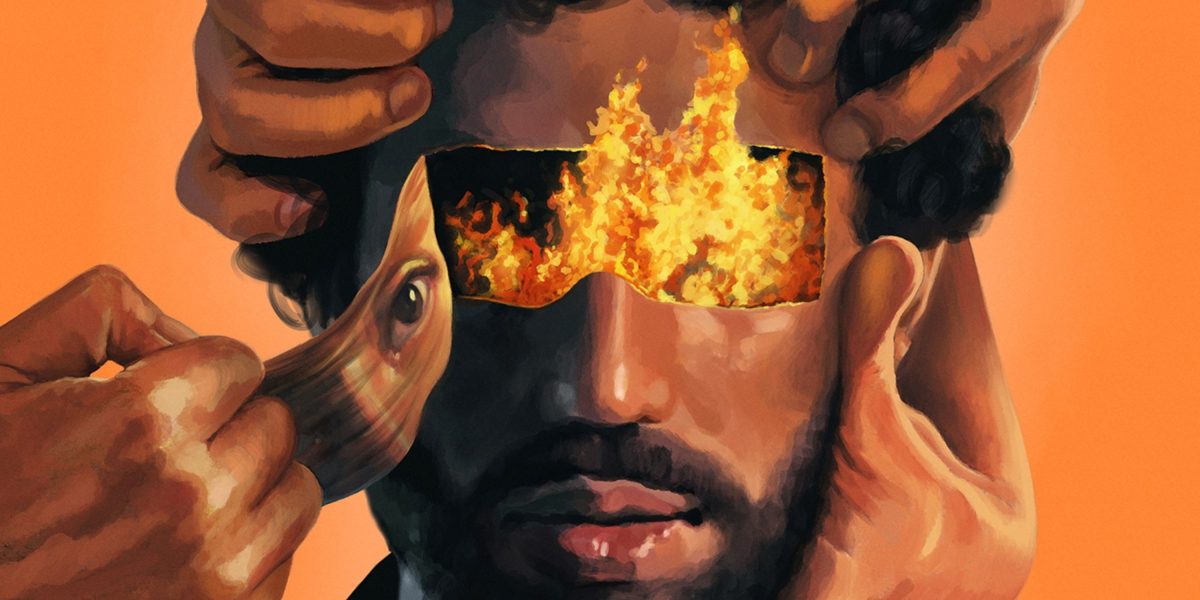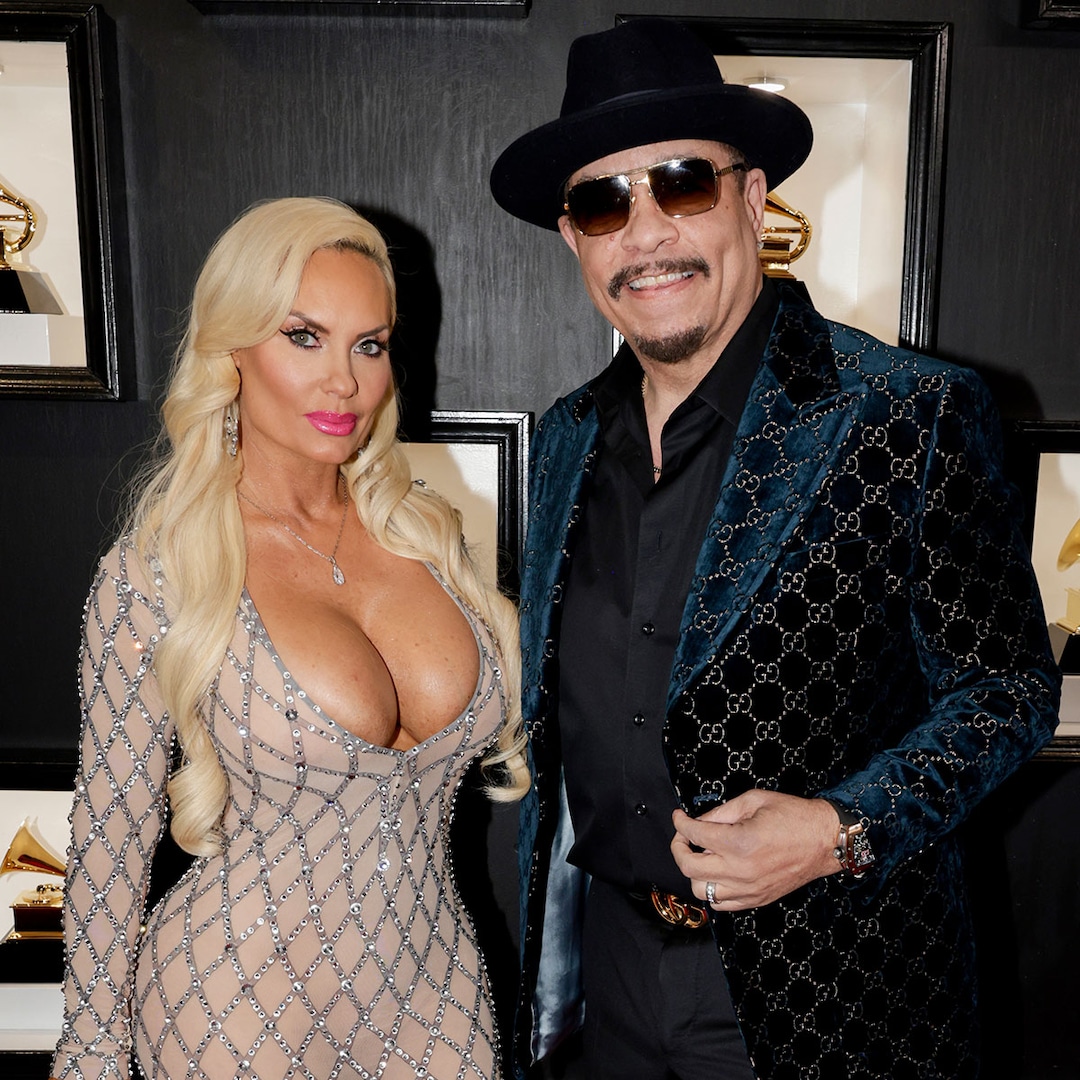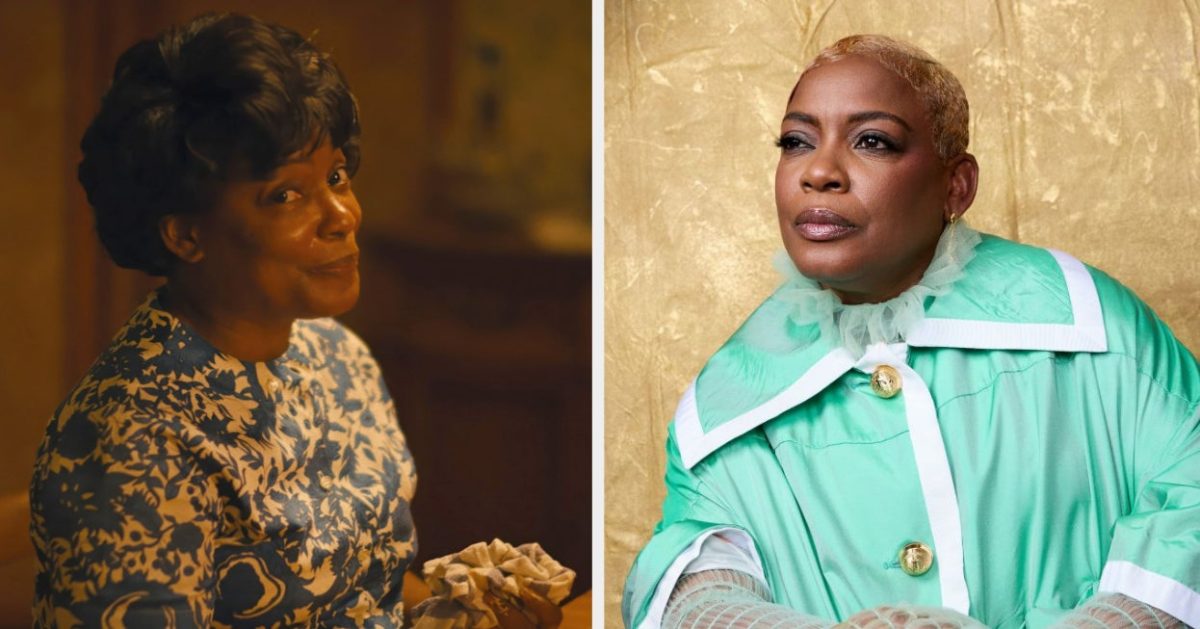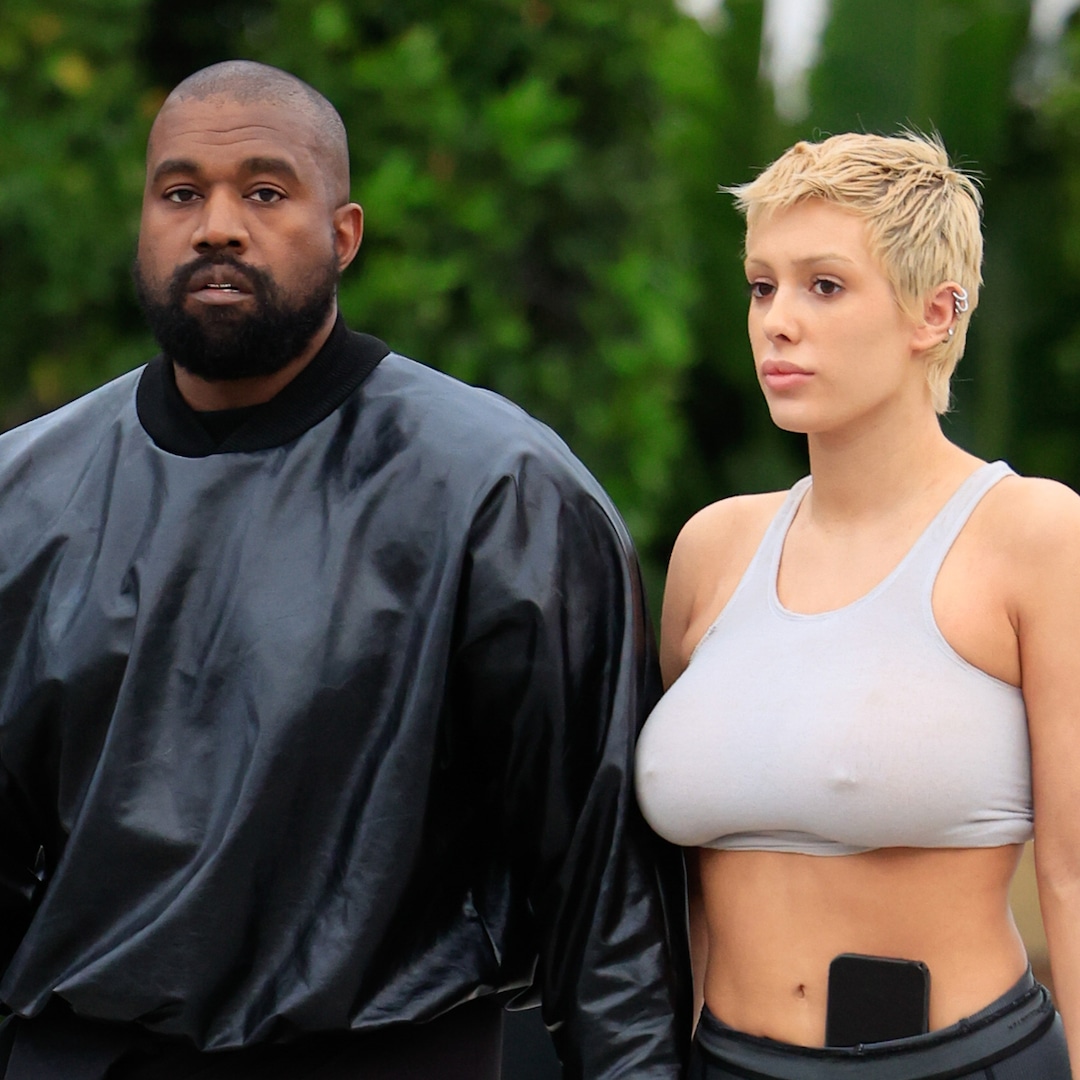
‘Rebel’ Aims to Be “The Ultimate Movie About ISIS,” Musical Numbers Included
Sep 28, 2023
The Big Picture
“Rebel” is the most personal and ambitious film by directors Adil El Arbi and Bilall Fallah, aiming to be the ultimate movie about ISIS and the Syrian Civil War. The filmmakers faced fears and doubts throughout the eight-year process of making the movie, but believed it was important to tell the story from a Muslim perspective to shed light on the impact of ISIS on the whole world. The movie went through a rigorous editing process to condense a four-hour first cut into a focused story centered on the character of Kamal, a development that the directors found challenging but necessary.
From directors Adil El Arbi and Bilall Fallah (Bad Boys for Life, Batgirl), Rebel tells the story of Kamal (Aboubakr Bensaihi), who leaves his family behind in Belgium to help war victims in Syria, but then finds himself forced to join ISIS. While Kamal falls deeper into the brutality of his new reality, his younger brother Nassim (Amir El Arbi) becomes easily manipulated by a recruiter looking to radicalize the next generation, and their mother (Lubna Azabal) must fight to protect him from the same fate as her eldest.
During this interview with Collider, filmmakers El Arbi and Fallah talked about their ambition for making the ultimate movie about ISIS and the Civil War in Syria, their years long process for getting this story to the big screen, why it was important to weave in a musical element, widdling down a four-hour first cut, their constant fight not to be generic, the hardest days on set, and how they approached the film’s brutal violence. They also talked about meeting in film school, how far along things are with Bad Boys 4, their desire to make a full-on musical with Hollywood stars, and their hope to be able to put together a documentary about the making of Batgirl.
Collider: This is definitely a movie that’s going to stay with me for a long time. You guys have talked about how this is the most personal film that you’ve ever made. When you make a film that you are so personally connected to, do you feel more assured and confident about it, or do you feel more pressure and responsibility?
ADIL EL ARBI: It’s a combination. Especially in this case, our ambition was to make the ultimate movie about ISIS and the Civil War in Syria, a little bit like Platoon and Born on the 4th of July were the Vietnam movies of Oliver Stone. That was where our attempt was, so that people can watch it back as an historical movie, so the pressure was high.
BILALL FALLAH: Yeah, the pressure was extremely high and it was very emotional. It was very dangerous to make because we know these guys. We know people that were radicalized and extremist, and you’re making a movie about a mafia organization, so there were a lot of doubts throughout the whole eight years we’ve been developing the project. But we decided to not let fear stop us from making this story. For us, it was super important because it tells the story from a more Muslim perspective, from the inside out. We never really saw a TV show or movie that really talked about it from that perspective and we felt like this movie has to be shown, not only for the Muslim community, but for the whole world because it affected us all.
Image via Disney+
Do those fears, pressures and nerves go away once you start shooting because there’s no time to think about the fears, the pressures and the nerves? Was this one of those movies where you just had to be focused on everything, all the time?
EL ARBI: The good thing about it is that it took a while before we were able to make the movie. It was a seven-year process, so by the time that we were on set shooting, with our DP and our crew, we knew every scene so well, and every purpose and meaning of the scene because we had worked so long on the script that there was basically no doubt. All the scenes just flowed naturally, so we were focused on the technical and performance aspect of it. It’s after that, that the stress comes back when you are editing. Our very first cut was four hours, so it was about finding the focus of the story.
When you end up with a movie that has a four-hour cut, how do you get down to a length that people will watch? How did you decide what to cut?
EL ARBI: It’s very tough. We could still release a TV show or a four-part miniseries. The movie decides for you who the focus of the story will be. All the characters have their own very elaborate and detailed storyline, but eventually, as we cut the movie together, we all knew that it was Kamal’s story because he really has the journey, from the start to finish. We decided that he would be the center point of the story and the heart and soul, and we focused on him. That’s how we narrowed down everything, so that it was really, very heavily on him.
Are you guys the kind of filmmakers that, when the edit is done, you just know, or are you the kind of filmmakers that will always see what you could have done differently, or changed or added or taken out?
EL ARBI: The latter one.
FALLAH: I never watch one of our movies like, “Oh, yeah, that was the perfect movie.” I do believe that Rebel is really the sum of our capacity as directors, from all the experiences we’ve had. It felt our best movie that we ever made.
EL ARBI: But if there was no deadline, we would just keep on editing. It’s always like that.
Image via Yellow Veil Pictures
You guys feel like filmmakers who are always looking to push yourselves and push your own visual style, and that you don’t want to get comfortable with any one thing. Whether it’s episodes of Snowfall and Ms. Marvel, or it’s Bad Boys for Life and Rebel, it all feels big and ambitious, but in very different ways. Has that been intentional? How do you feel that has most shaped you, as filmmakers? Does it just make you realize what you’re capable of?
EL ARBI: Yeah. Rebel is the combination of everything that we’ve learned in every experience, whether it’s a European project or an American project. We’re always trying to push ourselves, especially in the case of Snowfall and Ms. Marvel, where we were tasked with the pilot, which means that we decide the style of the whole show, and the tone, the cast, how the actors are gonna play their roles, and all that. The pressure is pretty high because you wanna make something very authentic to the story, but at the same time, also something special. We’re always pushing ourselves. On Ms. Marvel, it was an MCU show, but we wanted to be different than all the other things, so that’s why we had very interesting camera movements and the animation was so important to us. And with Rebel, the musical parts were outside of our comfort zone. That was a big challenge because we were not 100% sure if it would work out, but eventually, we saw that it resonated on an emotional level with the audience and we were glad that we took the risk to do it.
FALLAH: Also, from the moment that we feel comfortable, we are not comfortable. If it becomes an automatic system, that’s what we always avoid, on every project.
EL ARBI: It’s a constant fight not to be generic.
It’s fun because it makes it difficult to categorize you guys as storytellers.
EL ARBI: The link that you could find maybe are the characters. The characters in every project are like an alter ego of ourselves. There’s a lot of humanity in it, and we have a kinetic way of making movies and TV shows. But besides that, it’s very different worlds, and that’s why it’s so fun to do this job. You always can explore another kind of universe.
You guys have talked about how musicals are one of your favorite film genres, and the musical sequences in this are so powerful, but I wouldn’t necessarily consider the movie a musical. It feels more like moments where emotions run so deep that words can’t fully express what’s happening. Did you know, from the very beginning, that you wanted to use song and dance in the film, in this way?
EL ARBI: Yeah, and it’s exactly like you said. How do you express this kind of heartbreak and emotion and sadness and madness in normal scenes, and sometimes in a very short amount of time? Right from the start, we felt like the musical aspects or songs would help us out, in trying to reach that higher level. Music and poetry and dance reach the audience in a very deep and meaningful way, and in a deeper way than if it was just dialogue scenes. And also, with the subject matter of it all, ISIS was against music and instruments and female voices and dance, and since this movie is against ISIS, we felt like it needed to have a musical component against that. Music is also a very integral part of Muslim culture, and we tend to forget that. That’s why it was the highest form of expression for us. But it was an experiment. We were not 100% sure if it would work out, so we had a plan B to just cut the movie without it. But as we did it and we saw how it worked out, we decided to keep it. And then, for the Cannes Film Festival, they asked, “Do you have more musical scenes?” Now, we understand why musicals are Hollywood productions. They’re very hard to do and very expensive.
FALLAH: We also wanted to do something like Arabian Nights, but more of a nightmare parable. Feeling like it’s timeless is the approach we wanted. With Arabic culture, it’s a very big thing to have these stories and poetry, which is why we have the chapters. We knew, from the beginning, that it could go surreal and evolve into music, so that’s the approach we had.
EL ARBI: We hope, maybe in the future, that we can do a whole movie that’s a musical. That’s maybe the next step that we would like to do.
Did this satisfy that musical itch for you guys, or did it make you want to do another musical project even more?
EL ARBI: The itch is still there. That was an experiment, but now that we’ve felt like it worked out, we’re trying to find a story that lends itself to that style. We talked to our choreographer, Sidi Larbi Cherkaoui, who worked with Beyoncé on a lot of her shows, and also our composer, and we are trying to find a story that would be perfect to do completely in English, maybe with Hollywood stars. That’s the dream project, doing something in that vibe.
Image via Sony Pictures
I love that you can also go make Bad Boys movies because it just seems like it’s so totally different from something like Rebel. How are things coming with Bad Boys 4? How far along has that gotten?
FALLAH: We still need to shoot the Miami flavor of it all. We shot the whole movie in Atlanta and we made it look like Miami, but we need to have our shots in Miami. And then, I think that it’s gonna be, overall, just a super fun movie compared to the other movie, which had this emotional core. This one is really comedy and action and will be super fun.
EL ARBI: Fun times at the movies. I think cinema needs some comedy and some laughing moments. That’s the ambition of the movie, and we can’t wait to show it.
As filmmakers who get to return to a world like that, what did you learn from making the last one that you could apply to making this one? Were there techniques that you wanted to try, that you couldn’t do, the last time around?
EL ARBI: Even more, it’s how important the characters are. With Jerry Bruckheimer movies, we always tend to think about all the action and the crazy explosions. But actually, it’s the characters of his movies that are the reason why the audience loves to watch them. So, we went further and deeper on those character moments. But everything that we learned, in terms of camera movements and just directing on set, we tried to push ourselves and go even further. Sometimes we had some funky moments and funky shots that we didn’t try on the last one because it was maybe a little more classical. This time, we go more funky and more loco on this one.
Do you see this as the ending installment in this franchise, or do you see it as something that could keep going?
EL ARBI: We thought that the previous one was the last one. That’s why it was called Bad Boys for Life. Actually, that title would have been better for this one. So now, we don’t know. We always assume it’s the last one, but we let the audience decide. If they want it to continue, it will continue.
Image via Yellow Veil Pictures
When it came to Rebel, what were the days like, on set? Were there any particularly difficult days to get through because of the subject matter, or was it all very difficult, in that sense?
EL ARBI: The musical parts were extremely hard, on a technical level. You need to have the song up front and the camera movements up front and the choreography, so on a more technical level, that was extremely hard. The war scenes were like we were in the war ourselves.
FALLAH: But the musical scenes were even more difficult than the war scenes. Everybody had to be on the right tempo, at the same time, with the cameraman, the actors, and the extras. If one person goes wrong, the whole shot is gone.
EL ARBI: So, that was super hard. With the emotional scenes, it’s not that it was not difficult, but it felt like we were doing something important because everybody is connected somehow with the subject matter, whether it’s people in Belgium that are connected through family members or people that they know that went there, or the attacks that happened that they witnessed very closely. We shot in Jordan for Syria, and a lot of the extras and actors were refugees from Syria and Iraq, so they really were very invested, emotionally, in the story. Everybody felt like we were recreating something that they had experienced before.
What most impressed you about working with your cast and they delivered with their performances?
EL ARBI: It was personal to them. They all know people that had those experiences. Aboubakr [Bensaihi] is really from Molenbeek, from that neighborhood, and grew up with people who were part of ISIS. Lubna Azabal is from Brussels. She’s very method. She’s really legendary. And the little brother is my little brother (Amir El Arbi), and it was amazing to see how he learned to be an actor. He was only 10 years old then.
FALLAH: He had these unbelievable scenes. The complex emotions that he played were insane.
EL ARBI: And then, Tara Abboud is a Jordanian Palestinian, and she really interviewed people from Raqqa, the capital of ISIS at that time. She felt a responsibility to do honor to the women who were victims of ISIS.
FALLAH: For everybody, it was deeply emotional to give their performances.
When you guys met, did you know that you would team up and be directing together and have a career like this? How did this partnership happen?
FALLAH: It was the first day of film school. There were all these artistic people, and I was just a Moroccan immigrant coming to film school. There were not a lot. Everybody was white. And then, I saw him and was like, “Are you Moroccan?” And he said, “Yeah.” So, we formed a team. At the same time, we were in a very artistic school and we both loved Hollywood movies, so we really wanted to make Hollywood movies. It started when I was making my movie, and he came on my set. And then, he was making his movie, and I went on his set. Organically, we were just always together and having the same vision, which was sometimes very scary because I was like, “Shit, you see it the same way.” That’s how it all evolved.
Do you ever have disagreements? And if you do, how do you resolve them?
EL ARBI: Usually, we will have two ideas, and then we convince each other. He’ll say that my idea is better, but I say that his idea is better. That happens a lot. That’s usually how it happens. It’s all very organic. We’re a team.
Image via Yellow Veil Pictures
When you’re on set together, how do you approach the way you handle and deal with things? Do you do everything together?
FALLAH: There is no rule. We come to the set and it’s just a feeling. Sometimes he’ll have a scene that he really connects with, or he’ll connect with an actor, and sometimes it’s me. Sometimes I’m with the cameraman, and sometimes he’s with the cameraman. There’s no rule. We go, and it’s a feeling.
EL ARBI: Sometimes if it’s a big set, there are two units at the same time, so he’s there with the camera and one cameraman, and I’m with the other cameraman directing over there. It’s useful to have two people.
How did you approach just how much you wanted to show of the inner workings of what goes on in ISIS? What were the conversations like, when it came to what to show, how much to show, and when not to show things?
EL ARBI: It was an attempt to give almost a historical document of what happened during that decade, starting with the Civil War, then the rise of ISIS, and the attacks in Paris and Brussels, but also in other cities in the world. So much research went into it that you could make a documentary out of the movie. Every single thing that is happening is documented. But at the same time, you also know that ISIS was extremely violent. We saw all those propaganda videos, which were a very important integral part of that organization. I don’t think there’s ever been a terrorist organization that used propaganda, on that level, with all those techniques that are basically Hollywood techniques, to attract a young audience, and especially a Western young audience. It was always about trying to find that balance. You want the movie to be watched by the widest audience possible because you want to also educate them and try to explain that that’s how it was, but if you go too far in the violence, then they can’t watch it anymore. Some scenes were extremely graphically violent, but in the edit, we thought, “Okay, let’s not show it all the way.” It’s implied. You already understand what is happening and there’s already that psychological violence. It was a constant balance that we tried to reach, especially in the editing.
It was fascinating and horrifying to watch the scenes of them shooting their propaganda videos with a full Hollywood camera set-up.
EL ARBI: Yeah. After 9/11, Al-Qaeda did propaganda videos, but it was always very grainy footage, improvised with one camera. This time, ISIS was methodical. There were directors, they really went on location scouts, they cast people to be the executioners, and they rehearsed. That’s also why the people getting executed were so docile. They were obviously drugged, but they were rehearsing for hours and hours and hours, so they didn’t even know when the moment was that they were going to get executed. They laid tracks and had all the gear. It actually makes the organization even more psychopathic to see how professional, methodical and cold they were, in enforcing their crimes.
Image via Max
When you finished this, did you take a vacation to a tropical island? After all the time you spent developing Rebel, after you shot it, how did you walk away from it and put it behind you?
EL ARBI: By that time, we were shooting and editing Batgirl. That’s what we did. We were like, “Hey, this is nice. It’s another world. This is gonna turn out great.”
FALLAH: Batgirl was actually a really fun movie.
EL ARBI: It was actually one of the smoothest productions we’ve ever had.
That’s the documentary that we all want to see someday.
EL ARBI: I’m hoping they don’t destroy the footage, so we can still make a documentary of the making of Batgirl. I think a lot of people would wanna watch it.
Rebel is now playing in theaters.
Publisher: Source link
Alabama Barker’s $80k Christmas Haul Revealed
Meanwhile, Travis bought Alabama a pair of diamond earrings, as well as her third Cartier Love bracelet. Alabama said that Travis buying her a Cartier bangle “is kind of like a tradition now” as she explained that “every year” Travis…
Jan 4, 2025
Ice-T and Coco Celebrate Their “Sexy” 24th Marriage Anniversary
Ice-T and Coco Austin are ringing in a major milestone. The Law and Order: Special Victims Unit star and the model, who are parents to daughter Chanel Nicole, 9, not only celebrated the start of 2025 on Jan. 1 but…
Jan 4, 2025
Aunjanue Ellis-Taylor Talks Black Trauma, Nickel Boys
That's beautiful and so refreshing to hear. I’ve seen discourse online with sentiments of “Black films always have to have some type of trauma. Why can’t our characters just be happy?” What are your thoughts on that line of thinking?…
Jan 3, 2025
Kanye West Shares Rare Photo With Wife Bianca Censori
Kanye West and Bianca Censori are looking stronger than ever. The "Heartless" singer shared several rare photos of the pair to his Instagram Story Jan. 2, giving fans a glimpse into their private life. In the photos, Kanye, 47, can be seen snapping pics in…
Jan 3, 2025











